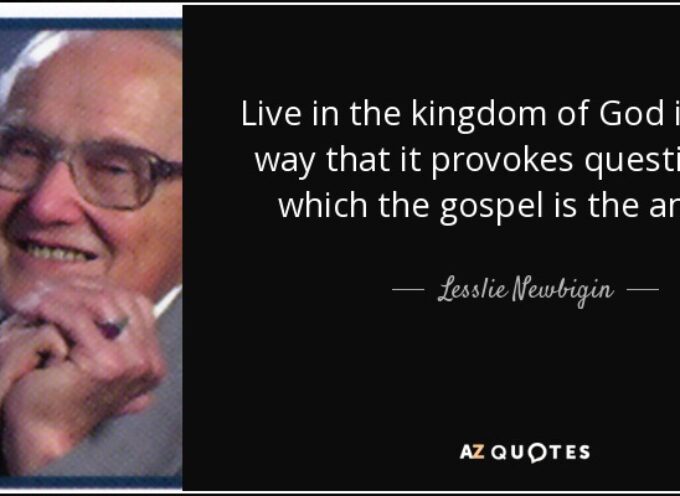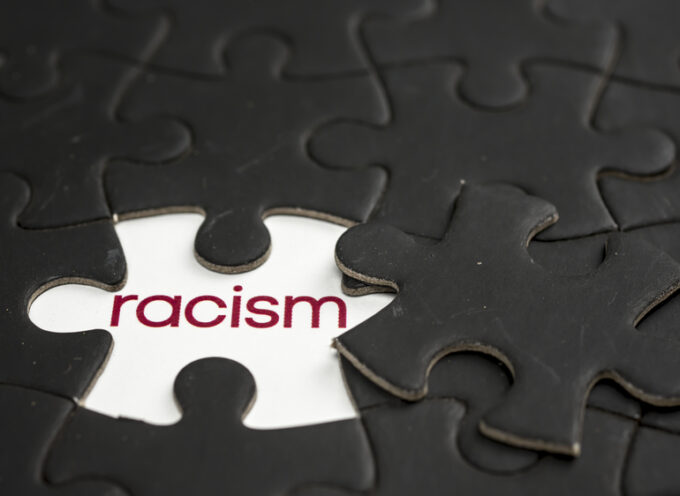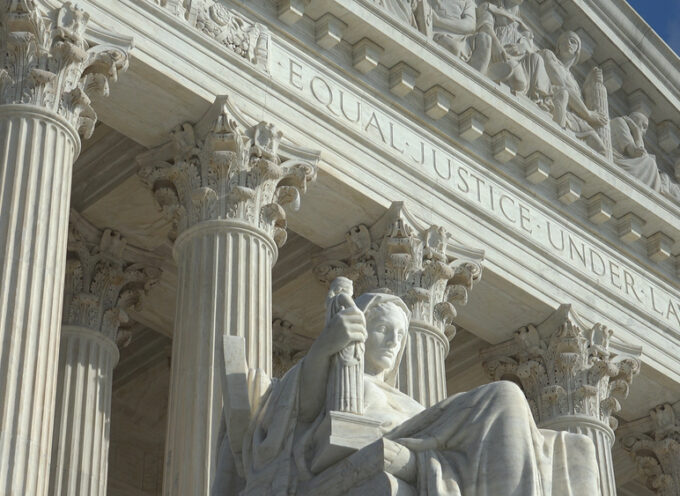Even though some mainstream news outlets have reported on the alt-right regularly for two years now, many Americans seem unaware of the movement. Many of those who are aware find it undefined and incomprehensible, containing as it does terms, personalities, and loose coalitions that are confusing and obscure.
For that reason, this series on the “anti-gospel” of the alt-right began with two installments addressing the alt-right’s ideology and leadership, and now proceeds to answer some frequently asked questions.
What is the alt-right’s relationship to Donald Trump’s campaign and presidency?
This is probably the most frequently asked question. During the campaign, Donald Trump did not make any overt attempts to enlist the alt-right, nor has he made any statements that would suggest he shares any explicit sympathies with the alt-right in particular. The campaign did, however, emphasize certain themes that were embraced by voices within the alt-right. In particular, they were enthusiastic about candidate Trump’s anti-globalist campaign rhetoric, his proposed anti-immigration policies, and his call to drain the P.C. “swamp” in Washington, D.C.
Because candidate Trump supported some of the same policies that alt-right voices support, some commentators lump him together with the alt-right. However, it is inaccurate and very misleading to place Trump in the alt-right camp. Some of his ideas and rhetoric converge with the anti-globalist and anti-immigration leanings of the alt-right but he and his administration are not alt-right. Although I opposed Trump consistently and publicly during the election cycle, and though I remain opposed to many of his ideas and much of his rhetoric, I think it is wrong to associate him with alt-right personalities like Richard Spencer or Jared Taylor. Even the Washington Post admits as much. If anything, the alt-right considered the campaign of Donald Trump an opportune moment to piggyback off the momentum of his campaign.
For example, consider that alt-right leaders proudly claimed in December that Donald Trump “is the first step towards identity politics for European-Americans in the United States.” Yet, their confidence in him had already begun to wane early this year because of the American missile strike on Syria, Trump’s willingness to work with various foreign governments such as China, and other Trump administration policies.
What is the alt-right’s relationship to Steve Bannon and Breitbart news?
Breitbart News has been labeled as a major platform for alt-right ideology and “spin” on current events. I do not frequent Breitbart’s site, but as best I can tell, its ideology and spin are of the “alt-lite” variety, emphasizing national identity and rejecting globalism and multiculturalism. The comment boards, however, often serve as a platform for white supremacists, white nationalists, and others.
Similarly, Steven Bannon’s views are “alt-lite.” Bannon, former chairman of Breitbart Media and now White House Chief Strategist for the Trump administration, has declared that Breitbart News is “the platform for the alt-right.” Yet he also makes clear that his vision for the alt-right has to do with national identity rather than white supremacy or white nationalism. It is more accurate to call Steve Bannon a nationalist than a racist.
Breitbart’s stance can be seen in this manifesto and by this piece by Milo Yiannopolous, which give evidence of identitarian leanings but not white supremacy or white nationalism.
Why is the alt-right gaining a foothold in American consciousness?
One reason is that there are a lot of white racists in the United States.
Another reason is that white folks often are uncomfortable talking about racism, so instead of bringing it to the surface and dealing with it, we sweep it under the rug. When I write an article or start a conversation about racism, the most common reaction among white readers is to change the subject. For example:
Commenter: “Yeah, well, I’ll start listening to you when you critique the alt-left.”
Me: “You know, I’ve written hundreds of articles against progressive ideology. But why change the subject? Let’s talk about the matter at hand which is, namely, racism among whites who identify as conservatives.”
Commenter: [crickets]
So let’s have the painful conversation that we need to have about racism, and let’s do it on Christian–rather than secular–terms. For those of us who are Christian and politically conservative, let’s be willing to engage in self-critique and in criticism of aberrant “conservative” ideologies. In other words, let’s have some integrity and a little bit of courage. Then we will have the credibility to critique progressive ideology.
A third reason is that progressive ideology has helped the alt-right immeasurably. Many (but not all!) progressives have pushed a morally decadent and relativist brand of multiculturalism that has resulted in an alt-right backlash; a “PC culture” that encourages people to mindlessly and inauthentically follow the most recent moral dictates of secular progressives; the decentering and degrading of religion in general and authentic evangelical religion in particular; and the promotion of a type of identity politics that seeks the good of one’s own “tribe” at the expense of all others.
A fourth reason is the determination of many national print media, TV outlets, and talk radio hosts to pour gasoline on the flames of civil unrest by their purposely-imbalanced and deceptive coverage of the news. This has been going on for decades, and now we are reaping the results of it.
A fifth reason is that large factions of the Left and Right have pushed economic globalization in an unthinking and uncaring manner, leaving millions of blue-collar Americans feeling culturally homeless and economically destitute.
A sixth reason is that the alt-right is image-conscious and P.R. savvy; many millennials find them intellectually and culturally sophisticated.
It’s important to consider that despite all the media attention it attracts, the alt-right continues to be a fringe element of American society most of whose members hide their true identity behind fake names and social media avatars.
Will you please explain what is meant by the alt-right “internet subculture?”
On the one hand, the alt-right movement is image-conscious and P.R. savvy enough to get its ideology out of the fringes and into the center of American political debates. On the other hand, it seeks to intentionally push the boundaries of socially acceptable speech and behavior.
This finds expression in internet trolling, tribal language, and memes. These activities serve the dual purpose of spreading various ideologies through anonymous forums (such as 4chan or 8chan) and networks (blogs, news websites, etc.), and to toy with, harass, or attack their enemies.
What do you mean that the alt-right expresses itself through “internet trolling”?
The alt-right has become famous for “trolling,” which is an exercise in which a person harasses, mocks, toys with, or attacks other people on their Twitter account, Facebook page, website, or email. Usually, the troll’s email address or social media account remains anonymous through the use of a pseudonym.
Its purpose is often to humiliate an opponent or cause an emotional response, for which the troll receives “lulz,” or personal satisfaction. Trolling has been weaponized by various alt-right groups for coordinated attacks against various individuals, such as black actress Leslie Jones.
What is some of the alt-right’s favorite tribal language?
Many alt-right groups are known for pushing the boundaries of socially acceptable speech, often for shock value or to undergird the emotional weight of their ideologies.
One favorite term is “cuckservative,” a combination of the terms “cuckold” and “conservative.” A cuckold is a man whose wife is cheating on him, and who either doesn’t care that she’s cheating or doesn’t have the backbone to stop the cheating. As the alt-right sees it, mainstream white conservatives are sell-outs who are cheating on our nation by “getting in bed with” other ethnicities and cultures.
Another favorite term is “SJW,” which stands for “social justice warrior.” A social justice warrior is a person who advocates for any type of identity politics other than white identity politics. It is a way of highlighting what they see as the real problem and what is at stake in the war in which they see themselves, namely the loss of identity due to the erosion of the boundaries or liberty of one’s own tribe.
How does the alt-right express itself through “memes”?
The alt-right often employs internet memes, such as Pepe the Frog. Pepe is a cartoon frog whose image and likeness the alt-right uses to promote different white supremacist and white nationalist themes. (You can read more about his history here, but I warn that if you are offended by strong language, you’ll be offended by the content of this link.) Essentially, Pepe came to life as a generic meme who represented the various ups and downs of life as one big in-joke. But over the course of time, the alt-right hijacked Pepe, infusing it with racist associations. Pepe is especially effective not only as a mascot for the Alt-right, but also as a sort of covert agent; because many people pass along internet memes without understanding the memes, many people unwittingly share Pepe in mainstream settings because they find them funny. (The type of person who likes to pass along emails that have already been forwarded 48 times is the type of person most likely to unwittingly forward a Pepe meme.)
[Note: The current post is the third installment in a four-part series on the anti-gospel of the alt-right, including a summary of the alt-right’s ideology, a profile of its leaders, a response to FAQs, and a gospel-centered evaluation of it as an ideology and a movement.]
Subscribe
Never miss a post! Have all new posts delivered straight to your inbox.







